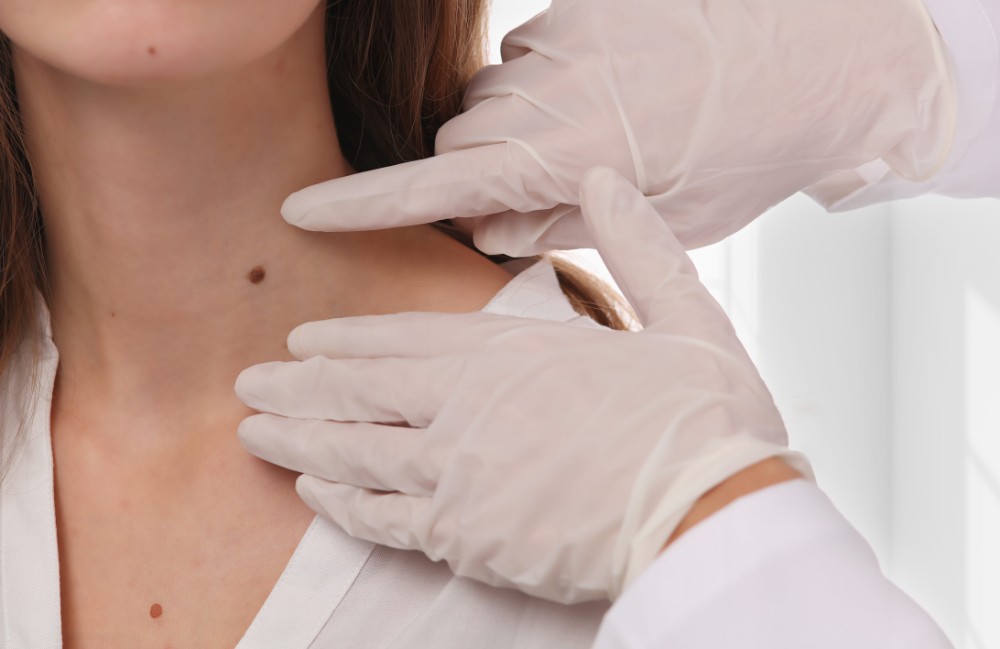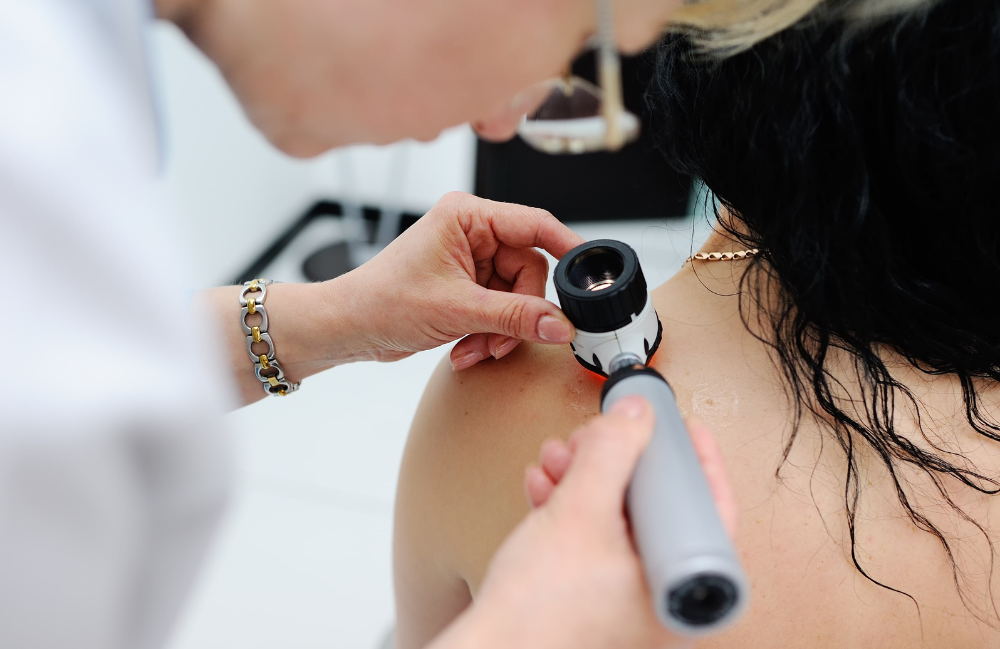
At Metropolis Dermatology in San Jose, we offer comprehensive mole and skin checks to guarantee the health and safety of your skin.
What is a Mole?
A mole, also known as a nevus, is a small growth on the skin that is usually brown or black. Moles develop when skin cells (melanocytes) grow in clusters rather than spreading evenly across the skin. Most moles appear during childhood and adolescence and can change in appearance over time.
Causes of Atypical Moles
Atypical moles, or dysplastic nevi, are irregular moles that can resemble melanoma, a type of skin cancer. While the exact cause of atypical moles isn’t fully understood, several factors can contribute:
- Genetics. A family history of atypical moles or melanoma increases the risk.
- Sun exposure. UV radiation from the sun or tanning beds can trigger the development of irregular moles.
- Skin type. People with fair skin, light hair, and light-colored eyes are more prone to developing moles and skin cancer.
Symptoms
Atypical moles are often larger than common moles and have an irregular shape or color. Warning signs include:
- Genetics. A family history of atypical moles or melanoma increases the risk.
- Asymmetry. One half of the mole does not match the other half.
- Border. The edges are irregular, ragged, or blurred.
- Color: The mole has uneven shading or multiple colors.
- Diameter: The mole is larger than 6mm (the size of a pencil eraser).
Possible Treatments
At Metropolis Dermatology, we offer several treatment options for atypical moles, including:
- Mole/Skin Checks. Regular screenings by a dermatologist are essential for early detection of skin cancer. During the examination, your dermatologist will inspect moles and skin growths to identify any that may be suspicious.
- Laser Treatment. For non-cancerous moles, laser removal can effectively eliminate them without the need for surgery.
- Excision. If a mole appears suspicious, surgical excision may be necessary to remove the mole and send it for biopsy to determine if it is cancerous.

FAQs
How often should I get my moles checked?
It is recommended to have an annual skin check, especially if you have a history of sun exposure, fair skin, or family history of melanoma.
Are all moles cancerous?
No, most moles are benign. However, irregular or changing moles should be checked by a dermatologist.
Can a mole change over time?
Yes, moles can change in size, shape, or color. If you notice any changes, it’s important to schedule a skin check.
Is mole removal painful?
Mole removal is generally quick and painless, performed under local anesthesia.
What should I do if I have a family history of melanoma?
Regular skin checks and practicing sun protection are crucial for individuals with a family history of melanoma.
Hear from
Real Patients

Schedule Your Consultation Today
If you have moles that concern you or want to take proactive steps in maintaining skin health, Metropolis Dermatology in San Jose, CA, is here to help. Schedule your mole/skin check today to guarantee early detection and personalized care for your skin!
